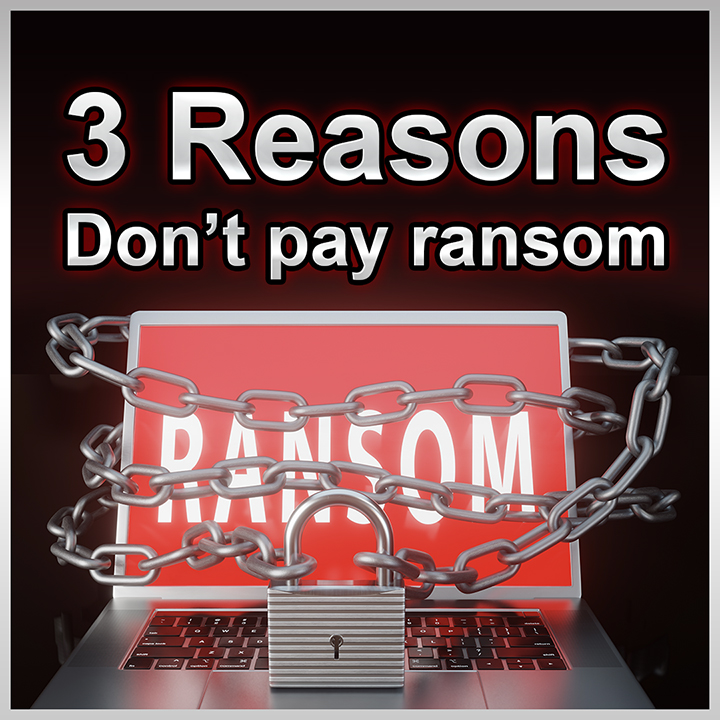Ransomware attacks have become increasingly prevalent in recent years, causing significant disruption and financial loss for individuals and organizations. These attacks involve malware that encrypts the victim's files and demands a ransom payment for the decryption key. While it may be tempting to pay the ransom and regain access to critical data, there are several compelling reasons why we should not succumb to these demands.
No Guarantee of Data Recovery
Another compelling reason not to pay the ransom is more assurance that our data will be returned intact. Cybercriminals are not bound by any moral or legal obligations, and there is no guarantee that they will honor their promise once the ransom is paid. Even if the decryption key is provided, there is a possibility that the data may be compromised or corrupted during the process. Instead of relying on the word of criminals, it is advisable to focus on preventive measures and data backup strategies to mitigate the impact of ransomware attacks.
Encourages Future Attacks
Paying the ransom sets a dangerous precedent and encourages future attacks. Cybercriminals target organizations they perceive as vulnerable and likely to pay the ransom. If they see that their tactics are successful and profitable, they will continue to exploit these vulnerabilities. By refusing to pay, we send a clear message that we will not be held hostage and are actively working to strengthen our cybersecurity defenses. This approach can help deter cybercriminals and force them to seek alternative, less damaging methods of making money.
Ethical considerations
One of the primary reasons why paying ransom in a ransomware attack is not advisable is due to ethical considerations. By paying the ransom, we indirectly support and incentivize cybercriminals to continue their illegal activities. These criminals profit from the fear and desperation of their victims, which only perpetuates the cycle of ransomware attacks. Instead, we should focus on strengthening our cybersecurity measures, raising awareness, and collaborating with law enforcement agencies to combat these threats effectively. Ahsay is conducting backup business. We always encourage enterprises to create backup rather than pay ransom. Immutable backup does not allow unauthorized access to your data. Data cannot be encrypted, modified, or deleted. You can restore data from backup sets in ransomware attacks.
While the urge to pay the ransom in a ransomware attack may be strong, it is crucial to consider our long-term implications and ethical responsibilities. By refusing to pay, we take a stand against criminal activities, protect ourselves from potential data loss, and encourage a more secure digital environment. It is essential to prioritize preventive measures, such as robust cybersecurity practices and regular data backups, to minimize the impact of ransomware attacks and ensure the safety of our valuable information. Do you have plan to create an immutable backup for restore your data in ransomware attacks? The cost only starts at USD2/100GB/month. Support unlimited endpoints. Contact us.
